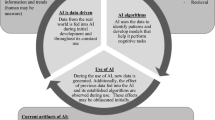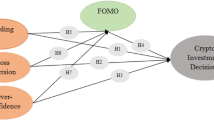Abstract
A dynamic model based on game-theory is proposed to address the problem of fraud detection in auditing under non-linear payoff functions. Non-linearity is introduced by incorporating learning and sympathy effects in the audit process. It is proven that the audit/fraud detection game between two new engagement parties has a unique mixed strategy equilibrium, between an experienced auditor and a client has a unique pure strategy equilibrium, whereas in the long-run the game converges to a pure strategy equilibrium. In addition to this, to ensure an acceptable level of quality in the audit process, a closed form formula used to estimate the optimal auditor’s replacement time is extracted. The validity of the proposed scheme is tested on empirical data and modeling results comply with the International Standard of Auditing that requires the key audit partner to be rotated after a predefined period.












Similar content being viewed by others
Notes
The key assumption for this result, however, is that the client’s earnings distributions are independent and identically distributed (i.i.d.) over time.
It is assumed that the client’s earnings distributions over time are identically and independently distributed
References
Azizkhani M, Monroe G, Shailer G (2007) Auditor tenure and perceived credibility of financial reporting. In: Simunic DA (ed) American accounting association-auditing section, mid-year conference 2007, conference organising committee, California State University, Northridge, CA, USA, p 1
Anastasopoulos NP, Asteriou D (2013) Applications of game theory and evolutionary game theory in auditing. In: Game theory: economics, theoretical concepts and finance applications, pp 67–86
Anastasopoulos NP, Anastasopoulos MP (2012) The evolutionary dynamics of audit. Eur J Oper Res 216:469–476
Anugerah R, Sari R-N, Frostiana R-M (2011) The relationship between ethics, expertise, audit experience, fraud risk assessment and audit situational factors and auditor professional scepticism. In: Proceeding of business and information, vol 8(1) ISSN: 1729-9322
Bazerman MH, Morgan KP, Loewenstein GF (1997) The impossibility of auditor independence. Sloan Manag Rev Summer 38:89–94
Beck PJ, Wu MGH (2006) Learning by doing and audit quality. Contemp Account Res 23(1):1–30
Bowlin KO, Hales J, Kachelmeier SJ (2009) Experimental evidence of how prior experience as an auditor influences managers’ strategic reporting decisions. Rev Account Stud 14–1:63–87
Bolton RJ, Hand DJ (2002) Statistical fraud detection: a review. Stat Sci 17(3):235–255
Butz A (1969) Higher order derivatives of Liapunov functions. IEEE Trans Autom Control 14(1):111–112
Carcello JV, Nagy AL (2004) Audit firm tenure and fraudulent financial reporting. Auditing 23(2):55–69
Carpenter TD (2007) Audit team brainstorming, fraud risk identification, and fraud risk assessment: implications of SAS No. 99. Account Rev 82–5:1119–1140
Coates CJ, Florence RE, Kral KL (2002) Financial statement audits, a game of chicken? J Bus Ethics 41:1–11
Cook J, Hatherly D, Nadeau L, Thomas LC (1997) Does cooperation in auditing matter? A comparison of a non-cooperative and a cooperative game model of auditing. Eur J Oper Res 103–3:470–482
Corbella S, Florio C, Gotti G, Mastrolia S (2015) Audit firm rotation, audit fees and audit quality: the experience of Italian public companies. J Int Account Auditing Taxation 25:46–66
Dillard-Eggers J, Roberts ML (2010) An efficient method for acquiring auditing procedural knowledge. In: Vicky A (ed) Advances in accounting behavioral research 13, Emerald Group Publishing Limited, Bingley, pp 89–111
Dutta P (1999) Strategies and games: theory and practice. The MIT Press, Cambridge
Earley CE (2001) Knowledge acquisition in auditing: training novice auditors to recognize cue relationships in real estate valuation. Account Rev 67(1):81–97
Eleftheriou K, Komarev I, Klumpes P, Farouk Abdel Al S (2013) Optimum effort in the market of audit services: the impact of auditor tenure under changing regulatory regimes. Available at SSRN: http://ssrn.com/abstract=2335761. Accessed 15 Jan 2018
Fischbacher U, Stefani U (2007) Strategic errors and audit quality: an experimental investigation. Account Rev 82–3:679–704
Fairchild R (2007) Audit tenure. In: Report qualification and fraud, Working Paper, University of Bath, Bath
Fairchild RJ, Crawford I, Saqlain H (2009) Auditor tenure, managerial fraud, and report qualification: theory and evidence. Available at SSRN: http://ssrn.com/abstract=1420703 or https://doi.org/10.2139/ssrn.1420703. Accessed 15 Jan 2018
Fargher N, Lee H-Y, Mande V (2008) The effect of audit partner tenure on client managers’ accounting discretion. Manag Auditing J 23(2):161–186
Fudenberg D, Levin DK (1998) The theory of learning in games. The MIT Press, Cambridge
Garcia-Blandon Josep, Argiles Josep Ma (2015) Audit firm tenure and independence: a comprehensive investigation of audit qualifications in Spain. J Int Account Auditing Taxation 24:82–93
Geiger M, Raghunandan K (2002) Auditor tenure and audit reporting failures. Auditing J Pract Theory 21(1):67–78
Green JO (2003) Models of adult communication skill acquisition: practice and the course of performance improvement. In: Handbook of communication and social interaction skills. Lawrence Erlbaum Associates Publishers, New Jersey, pp 51–92
Ghosh A, Moon D (2005) Auditor tenure and perceptions of audit quality. Account Rev 80(2):585–612
ISA (International Standard of Auditing) 200 (2009) Overall objectives of the independent auditor and the conduct of an audit in accordance with international standard of auditing. In: Handbook of international standards on auditing and quality control, pp 77–106
ISA (International Standard of Auditing) 240 (2009) The auditor’s responsibility to consider fraud and error in an audit of financial statements. In: Handbook of international standards on auditing and quality control, pp 163–206
ISA (International Standard of Auditing) 315 (2009) Understanding the entity and its environment and assessing the risks of material misstatement. In: Handbook of international standards on auditing and quality control, pp 271–321
ICAEW (Institute of Chartered Accountants in England and Wales) (2005) Agency theory and the role of audit, London
IESBA (International Ethics Standards Board for Accountants) (2011) Code of ethics high level summary of prohibitions applicable to audits of public interest entities
Jackson AB, Moldrich M, Roebuck P (2008) Mandatory audit firm rotation and audit quality. Manag Auditing J 23(5):420–437
Jenkins DS, Velury U (2008) Does auditor tenure influence the reporting of conservative earnings? J Account Publ Pol 27(2):115–132
Laitinen EK, Laitinen T (2015) A probability tree model of audit quality. Eur J Oper Res 243(2):665–677
Lane NE (1987) Skill acquisition rates and patterns: issues and training implications. In: Recent research in psychology, Springer, New York
Levine TR, McCornack SA (1992) Linking love and lies: a formal test of McCornack and Parks’ model of deception detection. J Soc Pers Relat 9:143–154
Li D (2010) Does auditor tenure affect accounting conservatism? Further evidence. J Account Publ Pol 29(3):226–241
Mansi SA, Maxwell WF, Miller DP (2004) Does auditor quality and tenure matter to investors? Evidence from the bond market. J Account Res 42(4):755–793
Marshall A (1975) In: Whitaker JK (ed) The early economic writings of Alfred Marshall, 1867–1890, vol 2. The Free Press, New York
Matsamura EM, Tucker RR (1992) Fraud detection: a theoretical foundation. Account Rev 67:753–782
Mazur JE, Hastie R (1978) Learning as accumulation: a reexamination of the learning curve. Psychol Bull 85(6):1256–74
McCornack SA, Parks MR (1986) Deception detection and relationship development: the other side of truth. In: McLaughlin ML (ed) Communication Yearbook 9. Sage Publications, Beverly Hills, pp 377–389
McCoy N, Friedman ME, Morris M, Burnett RD (2011) Internal audit: how to develop professional skepticism. J Corp Account Financ 22(4):3–14
Myers JN, Myers LA, Omer TC (2003) Exploring the term of the auditor–client relationship and the quality of earnings: a case for mandatory auditor rotation? Account Rev 78(July):779–799
Nanda R, Adler GL (1977) Learning curves: theory and application. American Institute of Industrial Engineers, Inc., Monograph 6, Norcross, Georgia
Nelson MW (2009) A model and literature review of professional skepticism in auditing. Auditing J Pract Theory 28(2):1–34
Newell A, Rosenbloom PS (1981) Mechanisms of skill acquisition and the law of practice. In: Anderson JR (ed) Cognitive skills and their acquisition. Erlbaum, Hillsdale, pp 1–55
Patterson E, Noel J (2003) Audit strategies and multiple fraud opportunities of misreporting and defalcation. Contemp Account Res 20–3:519–549
Russell C (1998) Coordination games. Cambridge University Press, Cambridge
SAS (Statement on Auditing Standards) 99 (2007) Consideration of fraud in a financial statement audit. American Institute of Certified Public Accountant
Sally D (2000) A general theory of sympathy, mind-reading, and social interaction, with an application to the Prisoners’ Dilemma. Soc Inf Sci 39(4):567–634
Shaub MK, Lawrence JE (1996) Ethics, experience, and professional skepticism: a situational analysis. Behav Res Account 8:124–157
Stanley JD, DeZoort FT (2007) Audit firm tenure and financial restatements: an analysis of industry specialization and fee effects. J Account Publ Pol 26(2):131–159
Stiff JB, Kim HJ, Ramesh CN (1992) Truth biases and aroused suspicion in relational deception. Commun Res 19:326–345
Sutton SG (1993) Toward an understanding of the factors affecting the quality of the audit process. Decis Sci 24(1):88–105
Vanstraelen A (2000) Impact of renewable long-term audit mandates on audit quality. Eur Account Rev J 9(3):419–442
Wilks T, Zimbelman MF (2004) Using game theory and strategic reasoning concepts to prevent and detect fraud. Account Horiz 18(3):173–184
Author information
Authors and Affiliations
Corresponding author
Additional information
Publisher's Note
Springer Nature remains neutral with regard to jurisdictional claims in published maps and institutional affiliations.
Rights and permissions
About this article
Cite this article
Anastasopoulos, N., Asteriou, D. Optimal dynamic auditing based on game theory. Oper Res Int J 21, 1887–1912 (2021). https://doi.org/10.1007/s12351-019-00491-3
Received:
Revised:
Accepted:
Published:
Issue Date:
DOI: https://doi.org/10.1007/s12351-019-00491-3




